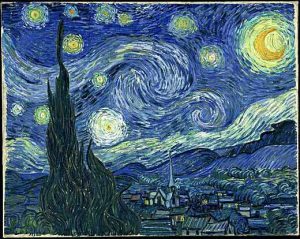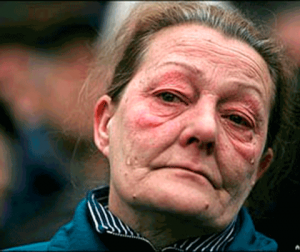Podcast: Play in new window | Obtain
Immediately’s visitor on our present is Rabbi Mark Gellman.
Rabbi Gellman is the Rabbi Emeritus at Temple Beth Torah in Melville, New York the place he has served since 1981. He earned his Ph.D. in Philosophy from Northwestern College in 1981 the place he additionally accomplished doctoral work within the Historical past and Literature of Religions specializing in Buddhism and Judaism. He’s the recipient of many honorary levels.
Rabbi Gellman writes a weekly column, “The Religious State,” for Newsweek journal and the syndicated column,“The God Squad,” learn by readers around the globe.
Welcome to our present Rabbi Gellman.
Dan:
Rabbi, throughout your time that you simply’ve been a Rabbi, and I perceive that’s been many years now, have you ever endorsed individuals with melancholy?
Rabbi Gellman:
Sure, I’ve. Though my basic orientation, and I hope it’s the orientation of most clergy, is to refer individuals to skilled psychiatrist or psychologists who specialize on this. It’s not one thing that clergy ought to enter, normally, as a result of they’re not skilled for it.
Dan:
When you’ve referred these individuals and they’re treating with a psychologist, psychiatrist, or each, do the clergy have some position in comforting the individuals with non secular assist with this sort of situation?
Rabbi Gellman:
Sure, I believe we serve two roles.
One is what I’d name “psychiatric first responders.”
We’re those who first alert individuals to the truth that they’re depressed and that they want some sort of skilled remedy as a way to get again to some stage of functioning life. The second objective which we function clergy, if we’re doing our jobs nicely, and our calling nicely is to offer to the neighborhood a message of hope. The antidote to melancholy, after all, is hope. And in a communal sense, Rabbis can present that hope. Actually, it’s my view that the seek for hope that’s the main motivator for individuals to affiliate with spiritual denominations and to hunt personally their very own solution to God. It’s the seek for hope, in the end.
Dan:
Many individuals who I communicate to across the nation, and myself included, I’m a practising Catholic, and so typically within the throes of melancholy, or perhaps even at first, I’d typically ask God, “Why me?” I believe that so many individuals, and perhaps it’s true for any sort of struggling that afflicts individuals, ask that seminal query. In your religion, and in your experiences, how do you reply to that?
Rabbi Gellman:
Nicely, I’ve a slightly unconventional view of many issues. And I’ve an unconventional view of that query. To start with, I don’t suppose it’s a standard query. Individuals say it’s, however I don’t consider it. I’ve by no means heard it. Most individuals aren’t actually consumed by the query of why this has occurred to them.
There’s two causes for that. First, they’ll consider plenty of causes it’s occurred to them. So, they know the explanations it’s occurred to them. Second, the query, “why me,” presumes a sort of non secular and moral conceitedness that most individuals are mature sufficient to not have. By that, I imply the query, “Why me?” should you type of unpack it a bit, means, “I’m so righteous, I’m so good, I’ve carried out a lot for the world, and for my household, and for my neighborhood, that my advantage is so huge, that it ought to shield me towards all evil.
Now, nobody actually believes that.
Nobody believes, of their proper thoughts, within the listing of the best human beings which have ever lived, Gandhi and Mom Teresa, that they need to be No. 3. I truthfully don’t suppose individuals ask the query, “Why me?”
My strategy has all the time been on two ranges. One on a stage of private counseling to attempt to get individuals to search out some assets to search out some causes to hope and I’ve some methods which are very efficient in that method.
Second, in my educating, to clarify to folks that there are two the explanation why unhealthy issues occur to them. The primary is that they triggered them to occur. Individuals who have lung most cancers after a lifetime of smoking actually haven’t any proper to say, “Why me?” They did it to themselves. Individuals who have uncared for their bodily health and have developed totally different pathologies that come from weight problems or inactivity have carried out it to themselves. So, a lot of what occurs to us, that’s evil, is self-produced.
The second motive why unhealthy issues occur is due to what Aristotle referred to as, “pure evil”. That’s simply the way in which the world works. A Rabbi stated a phrase, “Olam Okay’minhago nohgge,” which implies the world goes in accordance with its personal order. It means should you’re strolling alongside the road and a brick falls from a scaffolding and also you’re beneath, it’s unhealthy luck on you. However, that’s simply the way in which the world works. When you occur to be in a spot the place a twister hits, or a hurricane hits, it’s the way in which the world works and this pure order of the world just isn’t evil. It’s simply the pure working of the legal guidelines of the world. A Tsunami just isn’t evil. If a wave crashes over an uninhabited island it’s not evil. It’s provided that persons are there. Nicely, individuals select to be there. The purpose is there are issues we do to ourselves and there are issues that occur to us as a result of the world is the way in which it’s.
Dan:
With respect to “the way in which the world is, would that embrace our our bodies, our brains, and our genetics? There at the moment are research which present that many, many individuals, particularly with the extra extreme types of melancholy, have a powerful genetic vulnerability to melancholy. Or, different individuals develop up in neglectful houses the place they’re uncared for or bodily abused. These individuals have excessive charges of adult-onset melancholy. Are you able to follow-up on this?
Rabbi Gellman:
Certain, I imply, generally you draw some unhealthy playing cards. You draw environmental unhealthy playing cards, you develop up in an abusive, disadvantaged upbringing, and, in some instances, you draw a foul genetic card. However, I’d say to each these issues that there are methods that folks overcome these inheritances.
For instance, there are individuals who develop up in very, very troublesome circumstances. And for some motive, they’re disciplined and hopeful, and they’re able to transfer out into higher circumstances for the remainder of their life. Different individuals give up to the difficulties of their surroundings. How do you distinguish between one and the opposite? Why is somebody in a position to pull themselves up by their bootstraps and another person isn’t from the identical disadvantaged neighborhood? So, one thing else is at work right here.
So far as the genetic inheritance, it might be true, it most likely, definitely is true, research in schizophrenia definitely appear to point it’s true, that there’s a powerful genetic element to melancholy. Nevertheless, there’s an issue with specializing in that medical truth and the issue is that it offers individuals an excuse to wallow of their melancholy, to give up to their melancholy. Hey, look, I’ve identified people who find themselves overweight, who say, “Look, I can’t shed pounds as a result of I’m genetically fats.”
You already know, that’s ridiculous.
You could have a genetic predilection to weight problems, you my have a genetic predilection to melancholy, however that doesn’t imply you may’t combat it. And should you consider that this was your inheritance, it’s simply one more reason to give up. And melancholy requires vigilance, and it requires very sturdy emotional dedication to turning into nicely once more.
Dan:
Are you able to give us some insights into how the Jewish religion, the Jewish faith, views melancholy, and, particularly, do you give examples from the Previous Testomony that you simply consider are insightful into how individuals can see their melancholy and overcome their melancholy? You minister and also you preach. Are you able to give us a bit perception on that?
Rabbi Gellman:
The primary is a private understanding. I believe it comes out of scripture, however circuitously.
It’s a way that I developed which I name, “non secular balancing.” The historical past of that is that my spouse and I, Betty, had been dwelling in Evanston close to Northwestern College. We had been reworking an previous home and the guy that was serving to us do some spakling was carrying two massive containers of this spakle up the steps and I stated to him, “Why don’t you simply carry one bucket up? Why carry two without delay?” And he stated, “Nicely, if I carry one it throws me off and it hurts my again. If I carry two, it retains me in stability and I can carry twice as a lot.”
For some motive, it was an epiphany for me. It was a life-changing second, simply watching this man carry spakle up the steps. What I spotted at that second, and developed it as a counseling approach, and have spoken to psychiatric associations about it, is this system of non secular balancing.
So it really works this manner. Somebody involves me and so they’re depressed, they’re in grief, they’re in a foul place. So I say, “Right here’s what we’re going to do. We’re going to do 5 minutes of you telling me, in as a lot excruciating element as you may, why your life is depressing. 5 minutes.
After which, for the following 5 minutes, I need you to inform me why your life is fantastic. What are the fantastic issues in your life. But it surely must be for a similar period of time.
I do that typically with individuals in grief. “Give me 5 minutes of how unhappy you’re, and the way damaged you’re that you simply’re liked one died and the way unfair it’s and the way terrible it’s, and the way it’s breaking you, after which 5 minutes what you really liked concerning the particular person. And what was nice concerning the particular person.”
What I found shortly, utilizing this system, is that in the long run, individuals felt significantly better, on the finish of the counseling session. The explanation they felt higher was not that something had modified, however that they’d balanced the depressing, depressive pondering that they’d, that had imbedded itself of their mind due to their trauma, with constructive, endorphin producing, hopeful ideas that had been additionally of their mind, however they weren’t accessing them as a result of they weren’t excited about it. They had been obsessive about the loss. That’s the aim of the Psalms, of many various passages within the Bible which is to get you for the time being you’re most depressed to factor concerning the goodness that’s nonetheless in your life and to beat that pure tendency to focus in your burdens by delivering a aware solution to a meditation in your blessings.
Then you’ll uncover once you do that that there’s not a single day by which you get up the place your blessings don’t exceed your burdens – not one single day.






